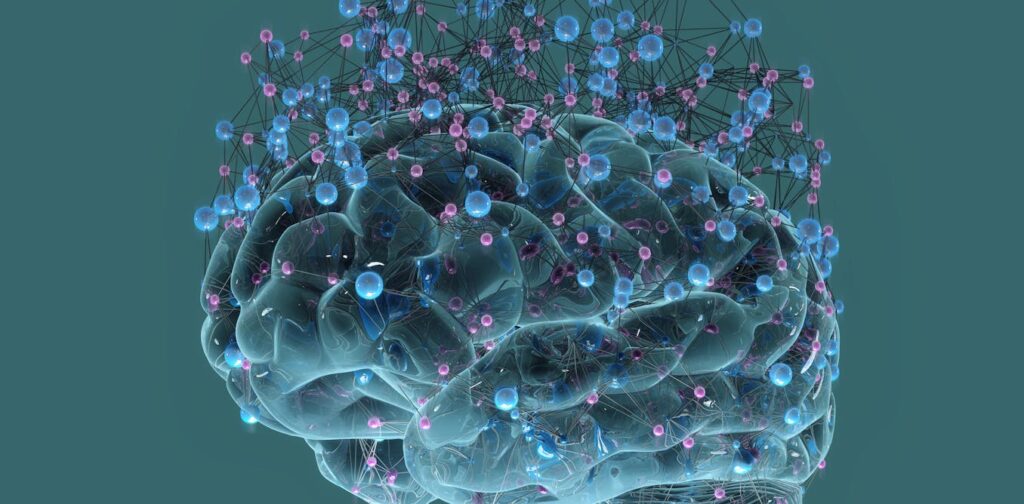
The brain’s waste disposal system, known as the glymphatic system, is believed to be more active during sleep. However, disrupted sleep may impair this system, potentially hindering the clearance of waste products or toxins from the brain. Researchers suggest that the accumulation of these toxins due to inadequate sleep could elevate the risk of developing dementia.
While the exact workings of the glymphatic system in humans remain under debate, with most studies conducted on mice, the possibility arises that improved sleep could enhance the removal of these toxins from the human brain, thereby reducing the risk of dementia. Here’s an exploration of what we currently understand about this promising area of research.
Understanding the Glymphatic System
Every cell in the body generates waste. Outside the brain, the lymphatic system transports this waste from the interstitial spaces to the bloodstream through a network of lymphatic vessels. However, the brain lacks lymphatic vessels, and until about 12 years ago, the mechanism by which the brain cleared its waste was a mystery. The discovery of the “glymphatic system” shed light on how the brain “flushes out” toxins.
Cerebrospinal fluid, which surrounds the brain and spinal cord, plays a crucial role in this process. It flows around the brain’s blood vessels, enters the spaces between brain cells to collect waste, and then carries it out of the brain via large draining veins. Studies in mice have demonstrated that the glymphatic system is most active during sleep, with increased flushing of waste products.
The Role of Amyloid Beta
One significant waste product is amyloid beta (Aβ) protein. Accumulation of Aβ in the brain can lead to plaque formation, a hallmark of Alzheimer’s disease, the most common form of dementia. Research in both humans and mice has shown that Aβ levels in cerebrospinal fluid rise when awake and decrease rapidly during sleep.
However, a recent study in mice suggested the opposite, indicating that the glymphatic system might be more active during the day. This has sparked debate among researchers, highlighting the need for further investigation to fully understand the system’s functioning in both mice and humans.
Implications for Human Health
It is well-known that good sleep is beneficial for overall health, particularly brain health. The short-term effects of sleep deprivation on cognitive function are widely recognized, and sleep is known to enhance memory.
In one experiment, a single night of complete sleep deprivation in healthy adults led to increased Aβ levels in the hippocampus, a brain region associated with Alzheimer’s disease. This finding suggests that sleep influences Aβ clearance from the human brain, supporting the hypothesis that the glymphatic system is more active during sleep.
Sleep Disorders and Dementia Risk
What remains unclear is the impact of long-term disrupted sleep, such as in cases of sleep disorders, on the body’s ability to clear Aβ from the brain. Sleep apnea, a common disorder characterized by repeated breathing interruptions during sleep, can result in chronic sleep deprivation and reduced blood oxygen levels, both of which may contribute to toxin accumulation in the brain.
Sleep apnea has been linked to an increased risk of dementia, and treatment for the disorder has been shown to enhance Aβ clearance from the brain. Insomnia, characterized by difficulty falling or staying asleep, also increases dementia risk over the long term. However, the effects of insomnia treatment on dementia-related toxins remain unknown.
Future Directions in Research
Collectively, these studies underscore the importance of quality sleep for a healthy brain, particularly in clearing dementia-associated toxins. However, it remains uncertain whether treating sleep disorders or generally improving sleep affects the brain’s ability to remove toxins and reduces dementia risk. Researchers, including those involved in ongoing studies, are actively exploring these questions.
For instance, investigations are underway to measure Aβ and tau concentrations in the blood over the 24-hour sleep-wake cycle in individuals with sleep apnea, both on and off treatment, to better understand the disorder’s impact on brain cleaning. Additionally, researchers are examining the potential of treating insomnia with orexin receptor antagonists to assess their effect on Aβ clearance from the brain.
If You’re Concerned
This is an emerging field, and many questions remain about the link between disrupted sleep and dementia, as well as whether improved sleep can enhance the glymphatic system and prevent cognitive decline. If you have concerns about your sleep or cognitive health, it is advisable to consult with a healthcare professional.







